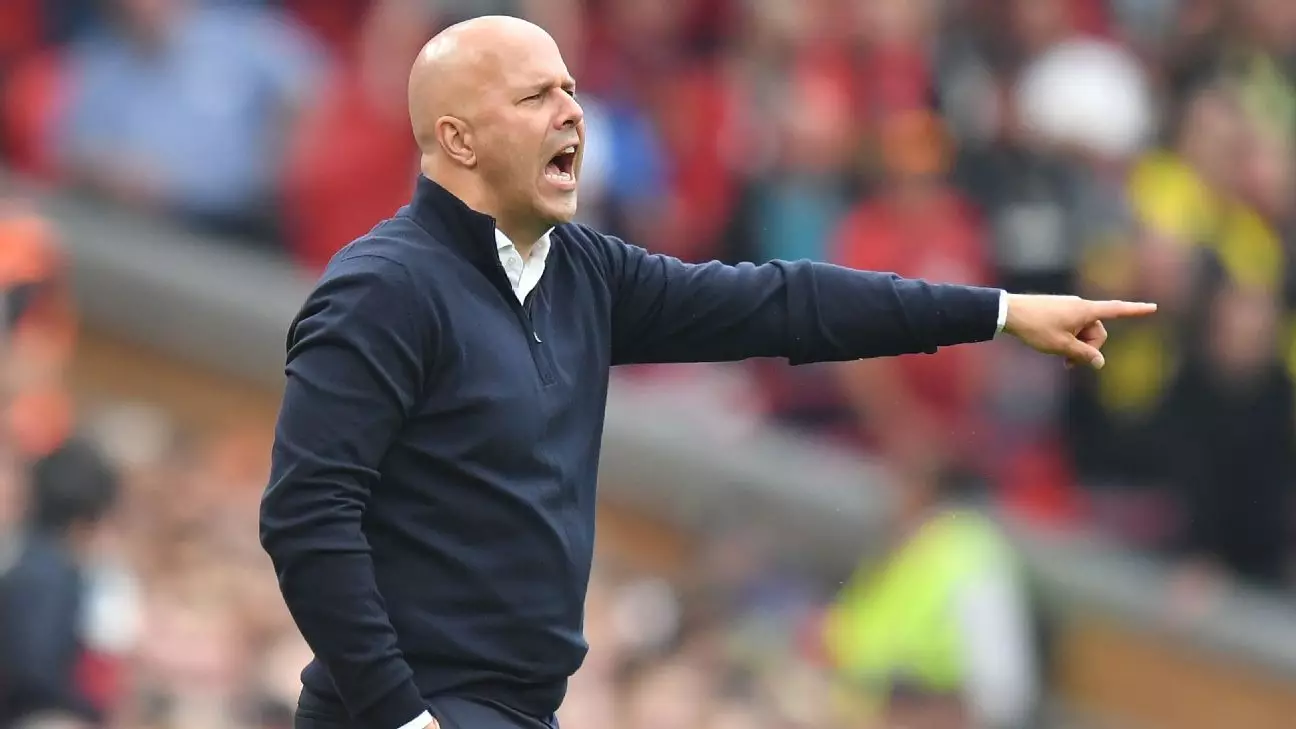In the world of football management, few narratives resonate as profoundly as that of Xabi Alonso. Having taken the reins at Bayer Leverkusen, Alonso has proven to be more than just a respected ex-player; he has transitioned into a special manager commanding significant respect in the footballing community. His near-flawless season last year, culminating in Leverkusen’s first-ever Bundesliga title and a much-coveted DFB Pokal victory, illustrates his tactical acumen and ability to galvanize a squad often on the fringes of elite performance.
Critics often overlook the importance of a manager’s pedigree when considering their effectiveness. Alonso, a former standout at clubs like Liverpool and Real Madrid, brings a wealth of experience from playing under some of the game’s greatest tacticians. His familiarity with high-pressure environments equips him with invaluable insights, allowing him to understand player psychology during decisive moments in matches. His tenure at Leverkusen, marked by an unbeaten league season and a narrow miss in the Europa League final against Atalanta, showcases his ability to forge an indomitable team spirit that few can rival.
As Liverpool prepares to clash with Leverkusen in the Champions League, the stakes are high on both sides. The Merseyside club currently leads the Premier League and sits atop their Champions League group, showcasing a blend of formidable attack and resolute defense. Despite this success, looming uncertainties regarding the future of key players—most notably Mohamed Salah, Virgil van Dijk, and Trent Alexander-Arnold—hints at potential disruption in the squad dynamics.
Salah’s recent dubious Instagram activity has stirred speculation, but it’s essential to draw a line between media interpretations and the on-field reality. According to Liverpool’s coach, Arne Slot, it is crucial to keep lines of communication open with players rather than getting distracted by social media narratives. The essence of team harmony lies in mutual understanding, and current discussions between players and management should hold priority over external perceptions.
For Liverpool, the challenge against Leverkusen transcends just tactical prowess; it’s about maintaining mental fortitude amid swirling rumors and distractions off the field. The depth of their roster will be tested as they aim to navigate not just the opposition’s strategies but also their internal uncertainties.
Arne Slot offered an illuminating perspective on what differentiates Alonso as a manager. While working alongside a manager provides intimate knowledge of their methods, Slot indicates that Alonso’s distinctive approach stems from his extensive background as a player. Having soaked up insights from coaching legends, Alonso’s management style reflects a blend of tactical proficiency and emotional intelligence.
Critics may wonder what specific attributes Alonso embodies that confer him this “special” status as a manager. It is not merely results on paper; it’s about the subtleties of player management—how to motivate while simultaneously instilling tactical discipline. His record speaks volumes, but perhaps the ultimate testament is the trust and respect he commands from his squad. This sense of unity can prove a hidden weapon, especially as they prepare to confront a polished and formidable Liverpool side.
As football evolves, managerial styles are becoming more fluid, often influenced heavily by prior playing experiences. The intersection of tactical strategy and interpersonal management exemplified by Alonso signals the dawn of a new era in football. Liverpool’s showdown with Leverkusen shall not only be a contest of points but an exhibition of contrasting philosophies and a potential apprenticeship for both managers involved.
For Alonso, this could be another significant juncture that further cements his reputation as a tactical visionary, particularly should he emerge successful in taming the formidable Liverpool. As the landscape of football continues to shift with new ideas and strategies, one can’t help but observe the artistic direction in which managers like Alonso are steering their teams—tying tactical brilliance with emotional connectivity to pave the way for a modern football renaissance.


Leave a Reply